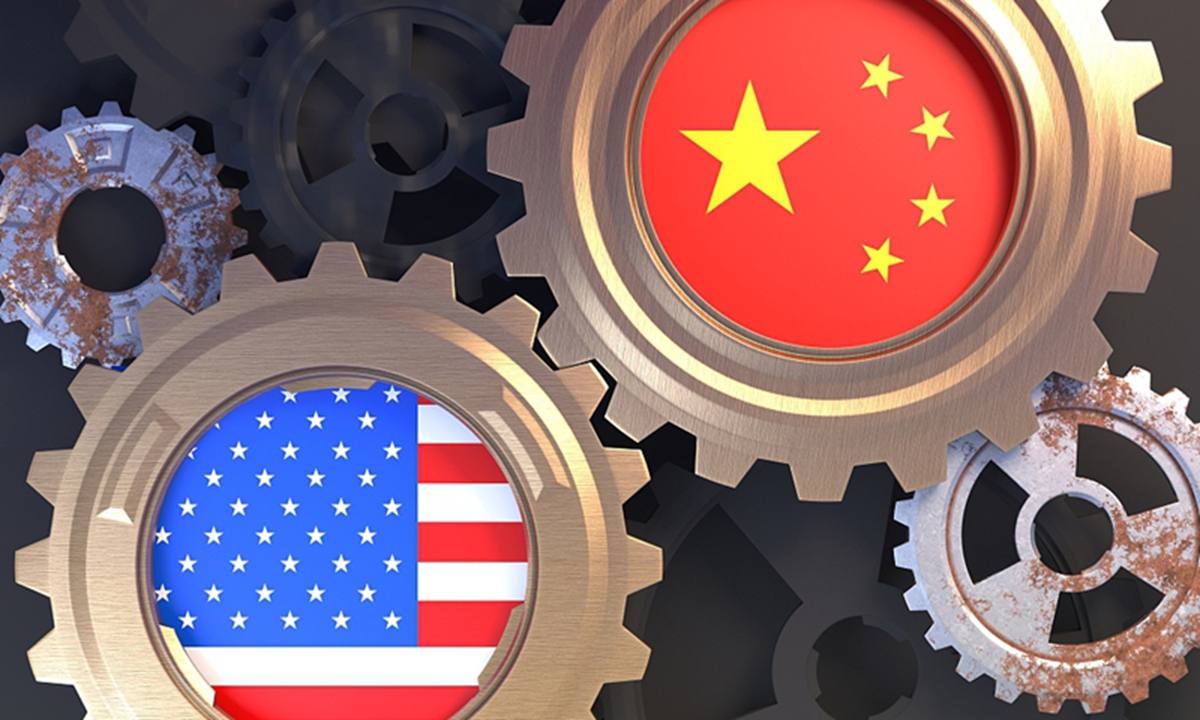
China US
The US Chamber of Commerce has called on the US government to come up with "a cohesive strategy about how we are confronting China on regulatory practices and human rights abuses, and at the same time that we're able to compete to sell into that marketplace, and to cooperate on issues like sustainability," Reuters reported on Tuesday, citing Suzanne Clark, president of the group.
Clark listed free trade agreements China has joined, including the Regional Comprehensive Economic Partnership, or RCEP, concluding that the US was "falling behind" and calling on the Biden administration to pursue more international trade deals, including returning to the Trans-Pacific Partnership trade deal.
Given the US government's failure in pushing for free trade deals, while other countries like China are championing free trade, the anxiety and urgency among the US business community are understandable. However, Clark's call for a US strategy to confront China on "regulatory practices and human rights abuses" is not only bizarre but also out of step with the real interests of the chamber's members and the broader US business community.
A confrontational approach is what has caused so much issues for US companies doing business in China, a reality Clark was apparently referring to when talking about the ability of US businesses to sell in the Chinese market and "cooperate on sustainability."
Specifically, it is precisely the US' attack and slander against China's regulatory system and so-called human rights issues regarding Northwest China's Xinjiang Uygur Autonomous Region that has pushed US companies, including Intel, in an impossible position of having to obeying the US government's anti-China policies, while avoiding offending their Chinese consumers and partners. Advocating further confrontation against China will only raise more hurdles for US businesses.
Frankly, it's laughable for the US Chamber to think that it can get both ways - confronting China, while keeping making money in the Chinese market at the same time. There is no country in the world that would allow that. And there is no strategy in the world, no matter how smart and cohesive it is, that could make that happen. If the US Chamber knows such a market and such a strategy, we suggest it go there and try that.
But with the Chinese market, the US Chamber can drop its illusions. China has continuously been opening its market for US companies, including financial institutions, and provided a much more stable environment for US businesses, in stark contrast to the US government's relentless crackdown on Chinese companies. The US has imposed sanctions on more than 300 Chinese companies, whereas China has not sanctioned one US business out of political reasons. The US business community, particularly the largest US business group, should have some perspective about that.
If the US Chamber is trying to represent the interests of US businesses and help them expand their businesses, it should focus on advocating for constructive relations that would help business cooperation, instead of calling for confrontational relations that would hamstring businesses. A professional business organization should at least know that common sense.




